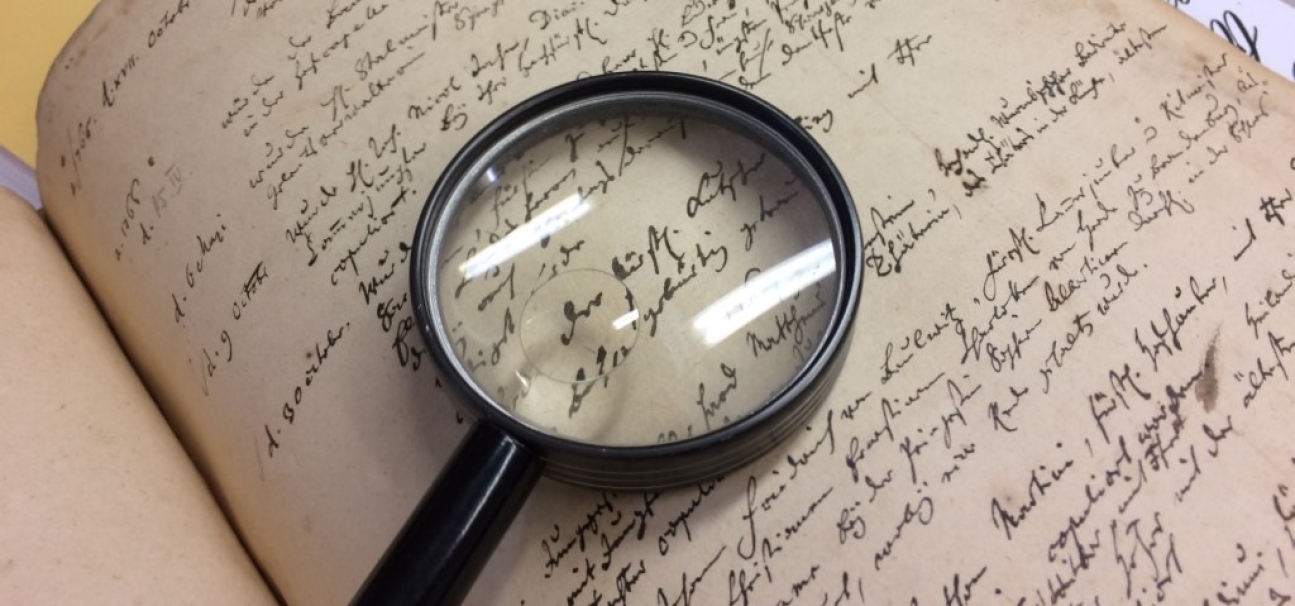- Trips
- Tour Calendar
- About Our Tours
- Plan a Trip
- Book a Trip
- About Us
- Contact Us



Are you one of the 60 million Americans with German or Swiss ancestry? Maybe you’ve wanted to do some research, maybe even visit your ancestral home, but don’t know quite where to start.
Alpenwild works with experienced German-language genealogists and family history experts. As you begin you journey of discovery, we’re here to help you establish your goals, do the research, and connect you with your roots on a Family History and Genealogical tour in Switzerland and Germany. many of our clients want to do as much of the genealogical reserch themselves—and that's a great way to start.
Like any research, German-language family history comes with a unique set of challenges. If you are able to get past them, the rewards can be incredible.
Not everyone’s immigrant ancestors kept letters from relatives who remained in the old .jpg) country or documented their journey in a journal that was passed down through generations. The first challenge of German-language genealogy is knowing exactly where your ancestors lived in the old country. Unfortunately, there is no centralized database of all immigrants and their origins, although some of the big companies are working on that.
country or documented their journey in a journal that was passed down through generations. The first challenge of German-language genealogy is knowing exactly where your ancestors lived in the old country. Unfortunately, there is no centralized database of all immigrants and their origins, although some of the big companies are working on that.
If you have heard from family that your immigrant ancestors were from Bern, Zürich, Berlin, or some other big city, you will probably need to dig deeper. Chances are, they lived close to that city but in one of the hundred or more neighboring villages and suburbs, most of which would have kept a separate set of records. Time and urban sprawl has swallowed up some of the small farming villages on the outskirts of larger European cities. The name Bern is a lot easier to remember than something like Fernenberg bei Stettlen or Gurtendörfli. Your search becomes possible when you discover the specific village. If it was Bern, that’s doable too, but you want to be sure before you start looking for that needle that might be in a much smaller haystack.
Your search starts at home. Did your ancestors leave anything behind for the family? Maybe you don’t have that chest full of documents, but you could still be able to find what you need. Did they settle with a group of German speakers? Maybe they went to a German church and their place of birth was recorded along with their major life events. If not, there are other ways of finding a hometown. It might be a naturalization record or some other official document. The possibilities are almost endless.
So, you’ve found the hometown? Excellent! If your ancestors were born before 1900 you .jpg) should have no problem locating the church records, unless they were destroyed by war, neglect, or some other disaster.
should have no problem locating the church records, unless they were destroyed by war, neglect, or some other disaster.
If you are lucky, all of your ancestors have been carefully registered by a dedicated priest with beautiful handwriting who wrote each name in Latin characters (that’s our alphabet), so you can identify your people. Otherwise, you’ve come up against the next great challenge: reading the old German handwriting.
Not only will the records be written in a different language, but German speakers used a different alphabet for most of their history. Reading it can be quite a struggle, and the only real solution is to practice it or find someone else who can read it. Just like with our handwriting today, each individual added their own flare…or just plain butchered it.
There was no real spelling standard in .jpg) German-speaking lands until the formation of the German Empire in 1871. Even after that, standards spread slowly. What does that mean? Say your ancestors are the (Hide-kuhs). How did you spell that? Well, for most of history, it depended on who was writing it. Heidke, Heitke, Haitke, Heytke, Haytge, and Eidke could all be referring to the same family.
German-speaking lands until the formation of the German Empire in 1871. Even after that, standards spread slowly. What does that mean? Say your ancestors are the (Hide-kuhs). How did you spell that? Well, for most of history, it depended on who was writing it. Heidke, Heitke, Haitke, Heytke, Haytge, and Eidke could all be referring to the same family.
Thankfully, there are some rules to tell you how it could not be “misspelled.” For example, you wouldn’t substitute an “L” for a “G,” but you replace “G” with “K.” It all has to do with phonetics, how our mouths produce sounds.
What’s the takeaway? Keep an open mind when it comes to archaic spellings of your surname. There was no such thing as a correct spelling 150 years ago.
Now that we’ve discussed the challenges of German and Swiss genealogical research, it’s time for the fun part: finding your people! Once you know where they lived, how to read the records, and what spellings look for, the rest is much easier. You can follow them through civil records, church records, land records, and some other less-known sources if they are playing hard to get. Finding your ancestors is a journey that brings you closer to your past and those who got you where you are today.